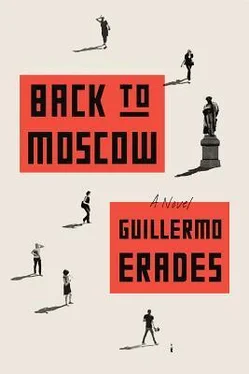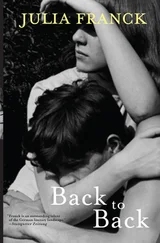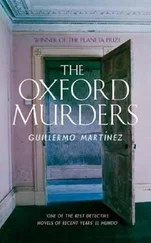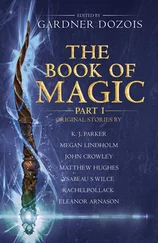‘Are you OK?’ I asked through the door. ‘We’re going to be late.’
When she came out of the bathroom, Tatyana was wearing tons of make-up and a bizarre hairdo, her beautiful curly hair all tied up in a knot on her head.
Truth was, I loved Tatyana best in the mornings, when she’d just woken up and was wearing one of my old T-shirts — the green of her sleepy eyes a miracle every time, her cheeks warm and rosy. Tatyana didn’t need make-up. You look so pretty like this, I’d told her a few times. But she insisted that a girl needed to wear make-up all the time to look prilichnaya, decent. By now I had given up.
I gazed at her face, unnecessarily caked in powder. ‘You look gorgeous,’ I said, kissing her on the cheek, careful not to spoil her lipstick.
We made it to the theatre just in time to find our seats. They were in the third row, close to the action. The lights went out and the actors appeared on the stage. I found the play hard to follow. I’d expected a simple plot, a dog that becomes a human, but the Russian was complicated and, as I used my imagination to fill in the gaps in my understanding, the story in my head became darker and darker, chillingly interrupted every time the audience burst out laughing at jokes that I kept missing.
Tatyana was sitting with her back upright, her eyes fixed on the stage, completely absorbed by the action. Even with her hair like this she looked beautiful. She was wearing an overly sweet and pungent perfume which I didn’t recognise and which stuck in my throat. I was afraid the perfume could also be smelled by the people around us, even by the actors on the stage. I told myself that I would buy Tatyana a new perfume, something more subtle, when the occasion presented itself.
And so it was, at that precise moment, watching an adaptation of The Heart of a Dog at the Stanislavsky theatre, that I realised Tatyana had somehow become my girlfriend. Why would I care about buying her perfume otherwise?
After the play finished we followed the crowd into the street. People gathered on the pavement of Tverskaya, discussing the show. I was flooded by a sense of well-being, thinking about Tatyana, my girlfriend, but also about going to the theatre, which for some reason I regarded as something exceptional — kulturno, intelligentno — something I should have done more often. I knew all the bars and clubs in Moscow, but hardly any theatres. Maybe I could take Tatyana out more often, I told myself, and we could also watch Chekhov plays, which would be easier for me to follow. With these thoughts in my head, we walked into the French Café next door and sat at a small table by the window. My initial plan had been to stop at the kiosks in Pushkinskaya after the play and buy a couple of blinis for dinner, but since Tatyana had made such an effort to look special, I felt the French Café would be more appropriate.
‘I’m so happy we came to the theatre,’ Tatyana said, holding my hand. ‘Such a beautiful show. Thank you, Martin.’
She was radiant.
It was so easy to make her happy. She enjoyed reading books, cooking, watching movies, going to the theatre. All Tatyana wanted from life, she had told me, was good health, friends, family, a man. It was as if, by limiting the things she cared about, Tatyana had distilled life to its essentials. When I was with her, the rest of my existence seemed unnecessarily complicated. Even when I asked her about Russian books, her answers betrayed a simplicity that had to be admired. ‘I enjoyed reading Anna Karenina ,’ she told me one day, ‘but I didn’t like the ending.’ That was all Tatyana had to say about Tolstoy’s masterpiece, that she didn’t like the ending, as if she were talking about the latest Hollywood blockbuster.
Now she was my girlfriend, and that made me her man. A couple of times, when referring to me, she had in fact used those very words, my man, but she hadn’t used the usual Russian word for man, muzhchina, but muzhik, which, as had been explained to me, implied a degree of added masculinity and roughness. Tatyana pronounced the word in a natural manner, without irony, moi muzhik, despite the fact that we had only been seeing each other for a few weeks and had never talked about the nature of our relationship.
Yet, despite accepting Tatyana’s role in my life, I wondered about the implications of having a girlfriend, about the unwritten set of rules that falls upon two individuals whose existence has thus far been unknown to each other. And, every time the brothers dragged me off for a night out, I faced a series of connected and inevitable truths: that attraction is a fickle and capricious motherfucker; that even the selfless affection of someone who really cares for you can’t compare to the liberating excitement of meeting someone new; and that, if I wanted to preserve my feelings for Tatyana, to stop her from becoming a cause of frustration, I had no choice but to keep considering myself a free man.
AFTER A LONG AND EXHAUSTING night with the brothers, I spent the morning at home, lying on the couch with a killer hangover, watching DVDs I’d bought on my last Gorbushka run. I had lunch, slept for a couple of hours, had coffee, tried to read a bit.
When Tatyana arrived in the early evening, as well as fresh clothes and cosmetics, she was lugging a bag of groceries. She kissed me hello, changed her clothes, disappeared into the kitchen. Soon, the homely smell of boiled cabbage wafted into the living room.
She was making golubtsy. ‘My babushka’s recipe,’ Tatyana had said when she cooked cabbage rolls for the first time, about a week after we’d met. I’d said that I really liked them and, as a result, we were now eating stuffed cabbage rolls once a week. They were juicy and meaty and had a citrus aftertaste, which came, Tatyana said, from the grated orange zest added to the mince, her babushka’s secret.
We sat for dinner. The smell of boiled cabbage somehow matched the new decoration of my kitchen. Two weeks after meeting Tatyana, I had hung a miniature painting on the wood-clad wall, next to the samovar. The painting — which I’d bought in the Old Arbat — depicted a colourful Russian winter scene, with children sledging and throwing snowballs. Above the samovar and the painting, on the kitchen shelf, I had placed lacquered wooden spoons and honey pots I had bought at Izmaylovsky Park. I thought the Russian handicrafts — black, red and gold — gave my kitchen the look of a Siberian izba, rural and traditional. The perfect setting for my evenings with Tatyana.
As we ate the golubtsy, I wondered how to tell Tatyana that I planned to go out again with the brothers on Friday. I didn’t want to make a big deal out of it so I was waiting for a way to drop the information into the conversation. Except, we were not having a conversation.
‘This is very tasty,’ I said.
Tatyana smiled, picking at her cabbage roll without really eating it, saying nothing. She was quieter than usual, visibly worried.
‘I might go out tomorrow night with some friends,’ I finally said. ‘You know, the guys from football.’
‘That’s good.’ Tatyana placed her fork on the plate. ‘Martin, can I ask you something?’ She was blushing, her pale forehead covered in pinkish stains. ‘I need to ask you a favour. But please do not feel obliged to say yes. I know it’s a lot to ask, but I think I have no other choice.’
Her voice was trembling.
‘What is it?’
‘Katya and I had a fight,’ she said.
Katya was her flatmate, a friend from Novosibirsk who had come to Moscow a few months before Tatyana. They shared a small flat in the outskirts, at one of the last metro stops on the orange line.
‘A fight about what?’
‘We’re no longer talking to each other,’ Tatyana said. ‘She’s going out with guys all the time and then she brings them home. It’s not very nice, you know. Our place is very small, I can hear every time she has sex. They are always different guys. I asked her not to bring guys home and she got angry, told me it was none of my business.’
Читать дальше












